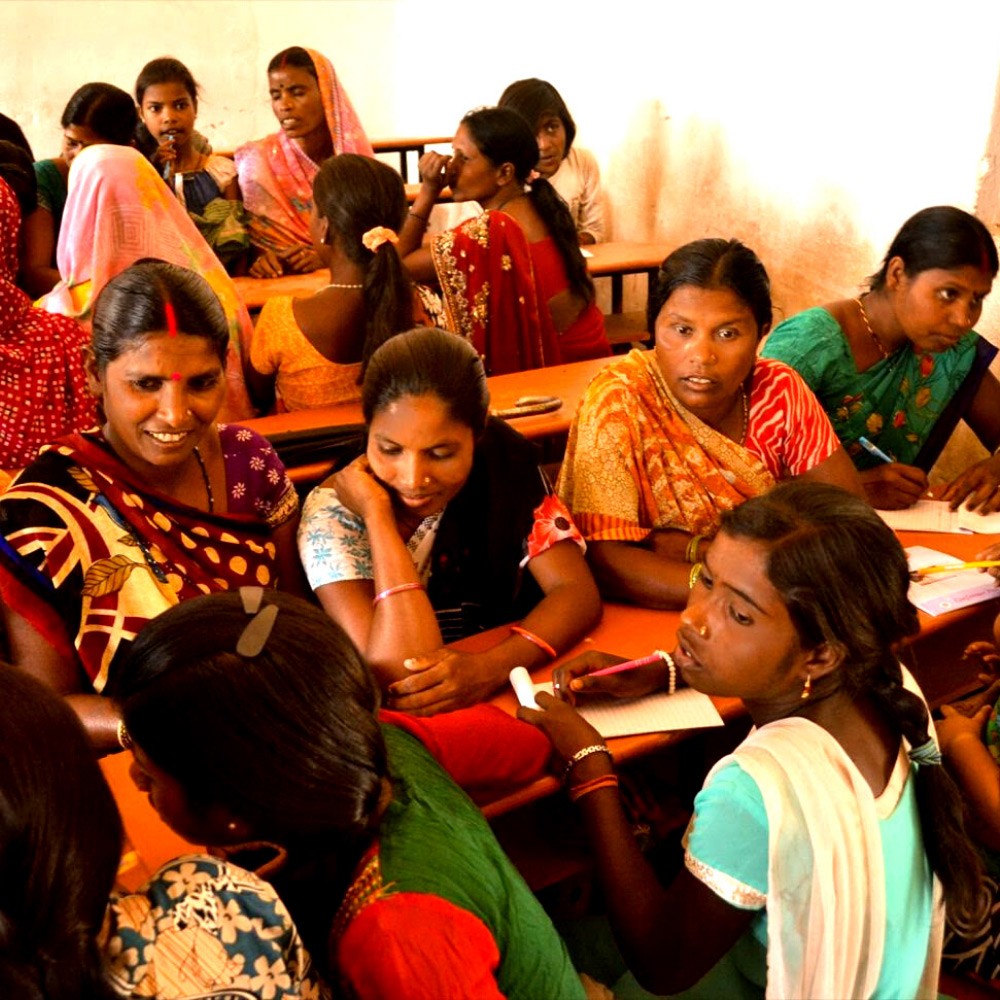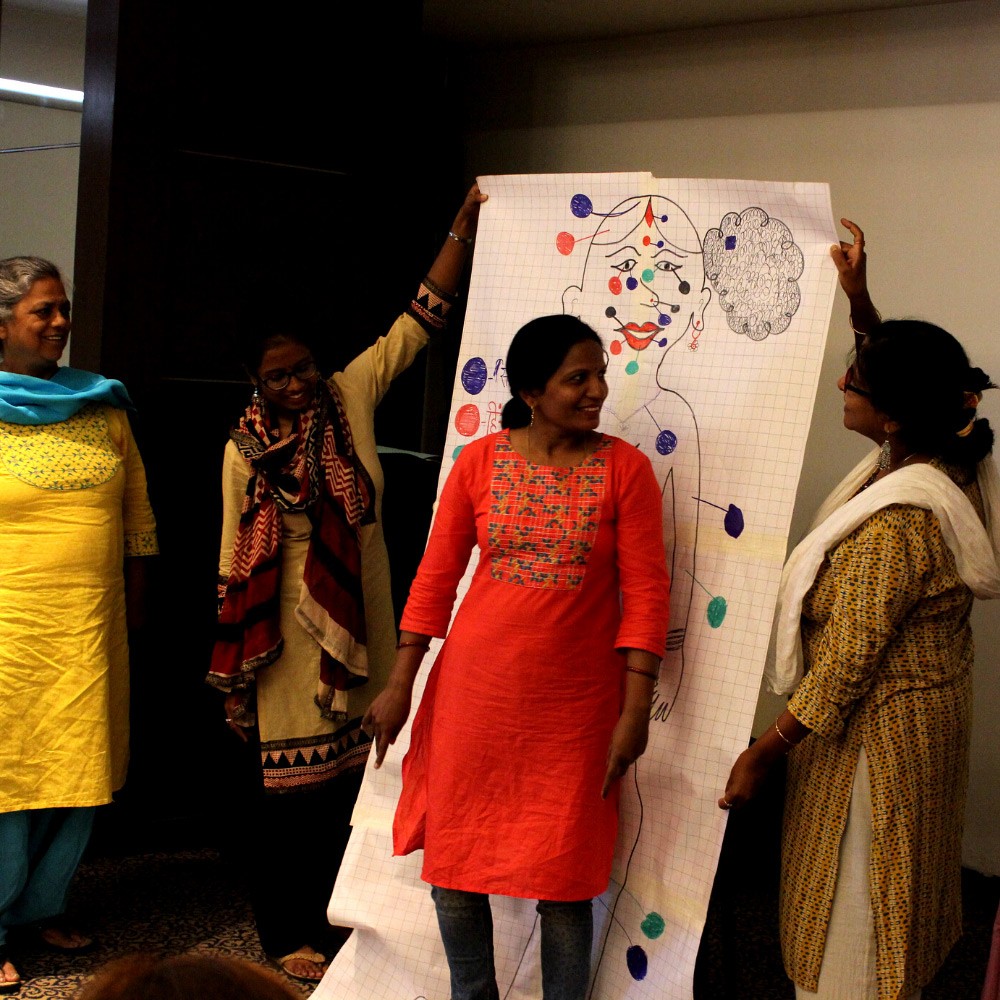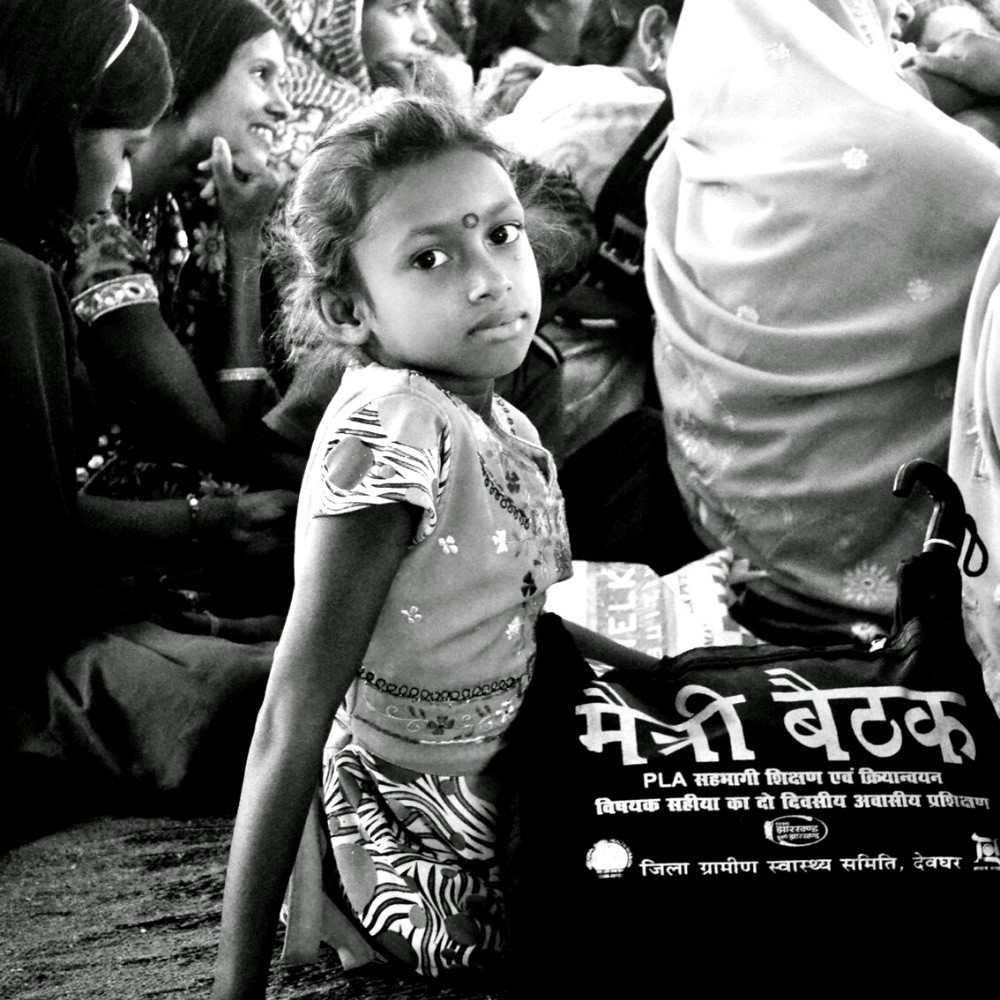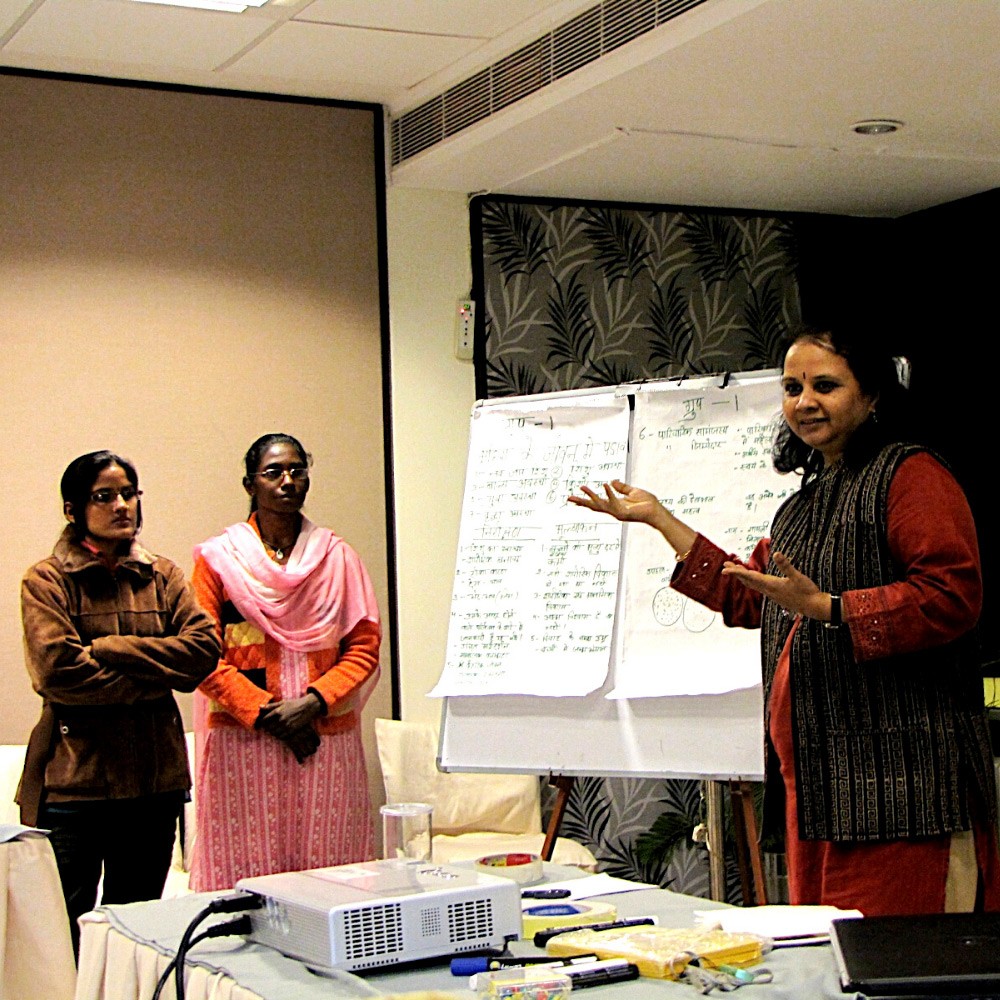Supporting women led networks
Earlier when my family members did not allow me to go for meetings, then I felt that all my family members are very concerned and worried for my safety. But after attending trainings, I realized that actually they are making me weak and under confident. Now I am more confident and have started going for meetings all alone.
Ibitda member organization staff | 2017
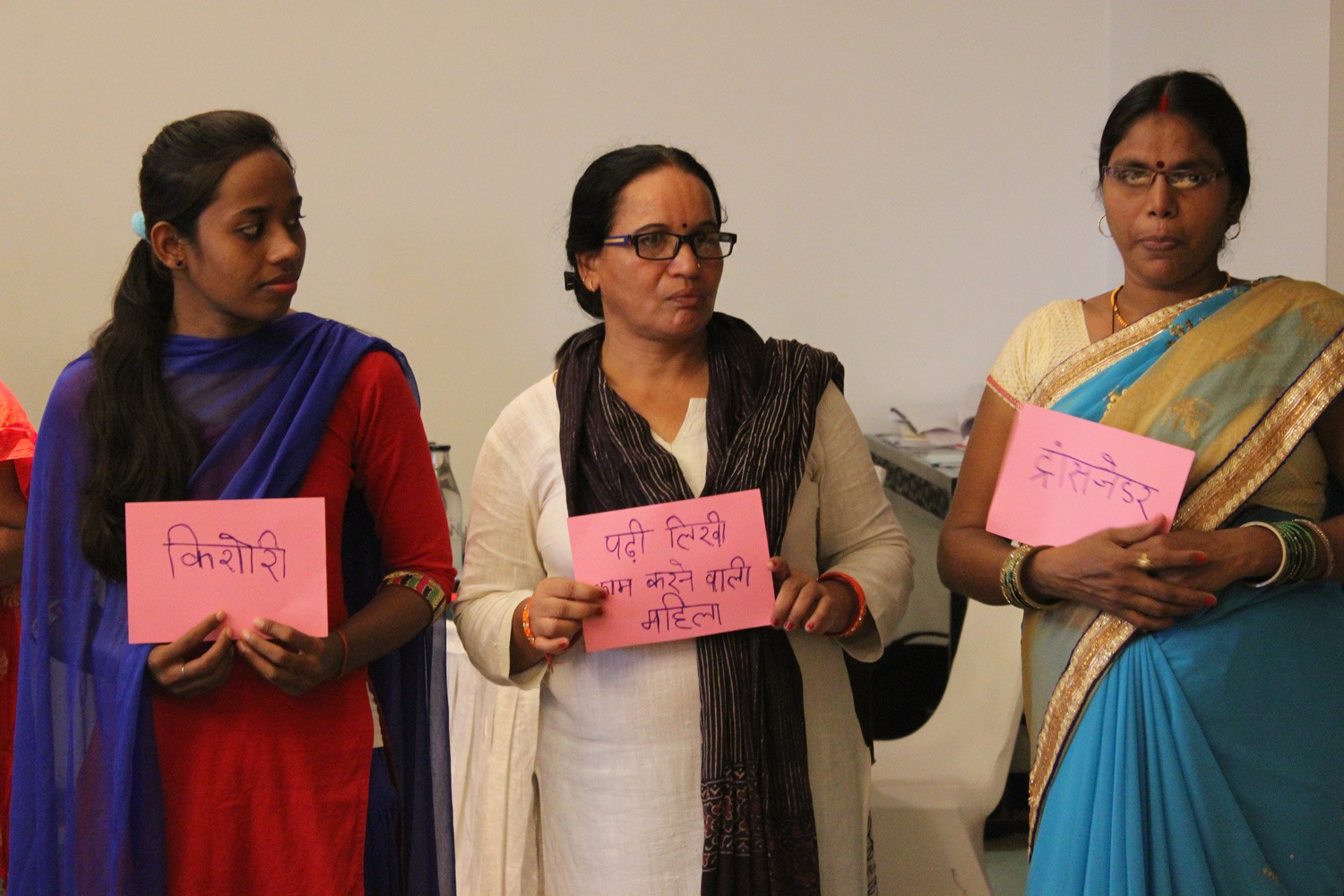
Ibtida (‘the beginning’ in Urdu) is a leadership development program that began in 2002 to support a network of organizations from the Indian states of Uttar Pradesh, Bihar and Jharkhand. The program aims to build the capacity of women-led organizations at the grassroot level and to support women representatives of these organizations beyond the top leaders. The program helps to ensure local-level movement building through the creation of strong networks community-based organizations and to enhance the use of formal and informal human rights mechanisms at the local level. This is achieved by enhancing the leadership capacities of women and ensuring that they have access to information that would enable them to demand their rights and alter their position within society – economically, politically and socially.
With Ibtida, CREA organizes trainings and workshops that provide issue-based explorations on sexuality, gender, violence against women and human rights as well as opportunities for the sharing of challenges and achievements. Ibtida members are continuously applying these learnings to influence their own families, organizations and communities. Examples range from reexamining biases around religion in order to reach and interact with different communities to using their enhanced concepts around gender roles in rearing their children and encouraging their sons to do household chores and daughters to do outdoor tasks. At the organizational level, some have policies that are gender sensitive and rights affirming – for example, male and female staff members share roles and responsibilities which were earlier allocated in a gender stereotypical ways (male staff members would go out of the office more often, while female staff members would handle kitchen in the office).
